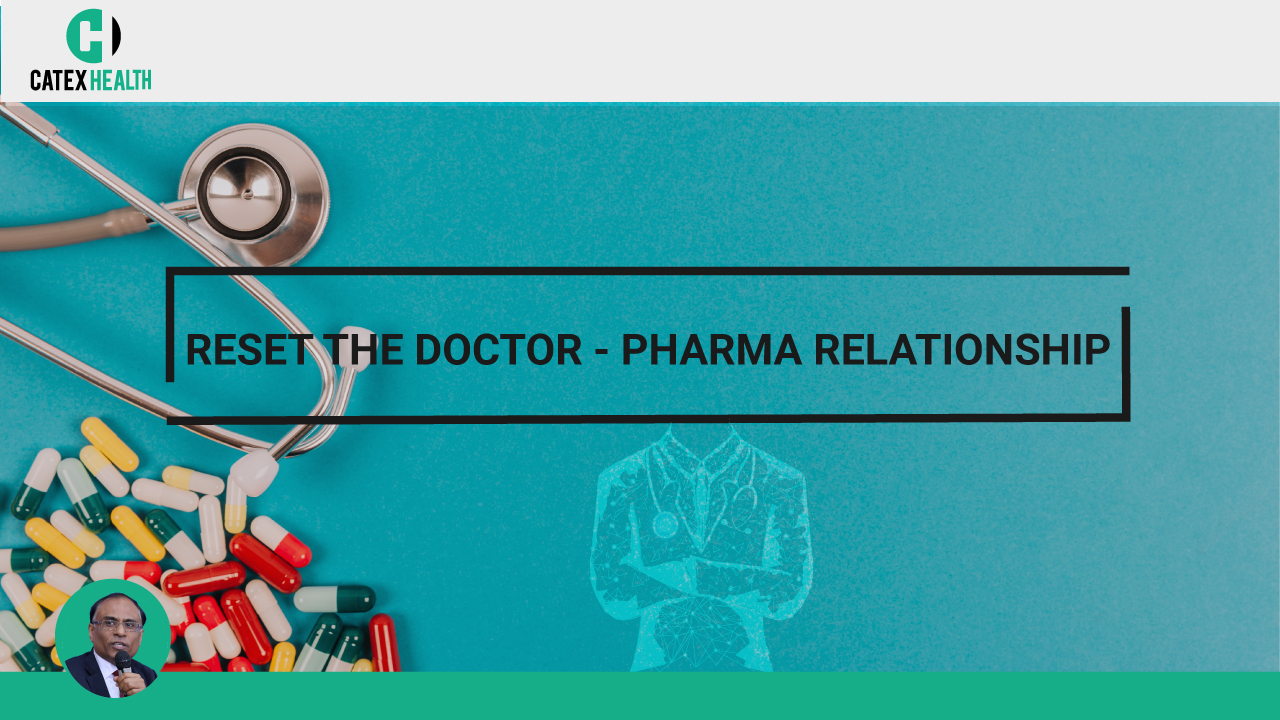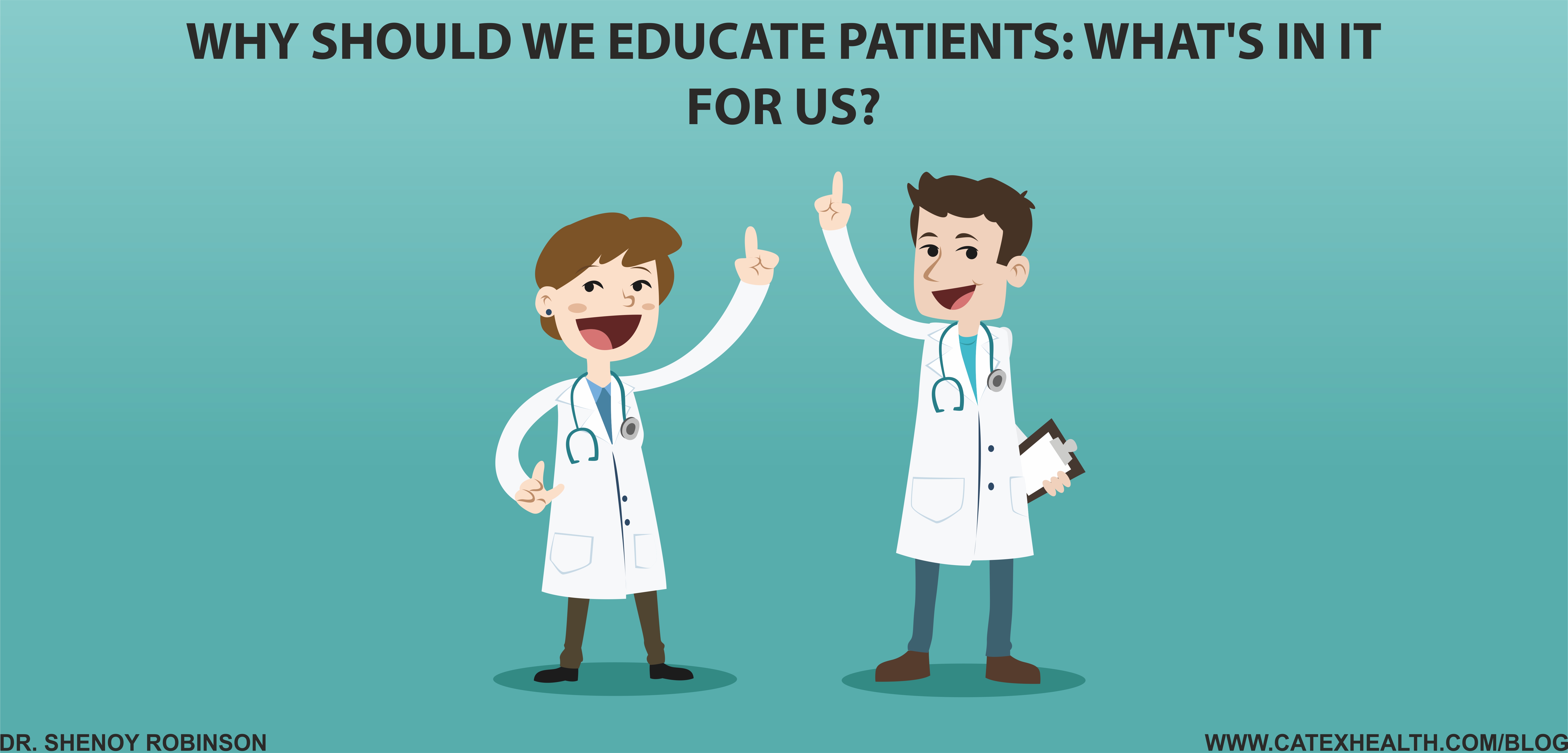In our last post, we discussed some Active Listening techniques that when followed would help us to make our patients feel that we actually care for them and are there to look after them. This week, we delve deeper and understand empathy, which is key to make the journey from an ordinary doctor to an extraordinary one.
The fundamental question that we physicians need to consistently and continuously ask ourselves is “Am I treating the patient or am I treating the disease?” The answer is a no brainer, but how often do we practice it in our daily routines of managing patients? We must remember that each patient wants to be treated as a person and not as an illness.They want reassurance that the doctor understands the non-medical aspects of his or her condition too.
“Each patient wants to be treated as a person and not as an illness.”
To be great doctors, we need to have an effective understanding of people and not merely the knowledge and practice of medical science. In the 1980s, when I trained, the emphasis was on knowledge and technical skills, but in the past few years, the world and the medical profession has increasingly been focusing on patient satisfaction, which extends far beyond mere treatment of diseases.
So what is this empathy? Why is it so important and how does one learn to be more empathetic?
What Is Empathy?
Empathy is the capacity to understand or feel what another person is experiencing, through the other person’s frame of reference, i.e., the capacity to place oneself in another’s position.
Apart from this, empathy also encompasses a broad range of emotional states, including caring for other people, wanting to help them and discerning what another person is thinking or feeling.
“Empathy is a cognitive attribute, not a personality trait” said Hojat rightly, who developed the Jefferson Scale of Empathy, a tool used by researchers to measure it.
“Empathy is a cognitive attribute, not a personality trait.” Hojat
Clinical empathy is the ability to stand in a patient’s shoes and convey an understanding of the patient’s situation as well as the desire to help. Clinical empathy was once dismissively known as good bedside manners and traditionally regarded as far less important than technical acumen. Increasingly, empathy is now considered essential to establishing trust, the foundation of a good doctor-patient relationship.
It is well established now that empathy leads to the following five outcomes:
- Greater Patient Satisfaction
When the patient is assured that the doctor has understood their entire problem and demonstrated this understanding, the satisfaction levels dramatically go up.
- Better Outcomes
As the doctor displays empathy, the patient trust strengthens, giving them the confidence to share more deeply and openly. This open communication empowers the patient not to hide pertinent facts, resulting in a more accurate diagnosis and follow-up. A win-win for both parties.
- Decreased Physician Burnout
As patient outcomes and satisfaction levels increase, the stress levels of the physicians reduce and automatically limit physician burn out.
- Lower Risk of Malpractice Suits and Errors
Patients don’t sue doctors they like, with whom they have a meaningful relationship and whose intentions were good. In fact, a large insurance company in the US MMIC is urging the doctors it insures to take an “Empathetics” course.
- Saves the Doctor’s Time and Hence Increases Productivity
Most doctors believe that they don’t have the time to be empathetic, but once they practice it, they realise that this skill is a time-saver rather than a time-waster. It can help doctors zero in on the real source of a patient’s concern and short-circuiting repeated consultations, unnecessary conversations and queries.
Why Do Doctors Struggle with Empathy?
It is not that doctors are insensitive, unemotional, cold human beings, it is just that they choose to mostly exercise their left lobes (discussed previously as part of 7 Skills We Wish Were Taught at Medical College) and try to use their cognitive brain to handle the emotional aspects of life, which often results in unfavourable outcomes.
We Objectify Patients
One of the most common methods used by us while dealing with a distressing situation or a distressed patient is to “Objectify”. We try to eliminate the human aspects in the equation and treat the patient as an object. This results in a generally negative state of affairs. Patients resent it, and on the contrary, desire empathy from their caregivers.
Doctors are “Explainaholics”
Another common solution we use for patients in distress is to provide more information. We feel that by doing so, the patient’s distress and fear will disappear and they will become more amenable. In reality, bombarding a patient with information does little to alleviate the underlying worry, although this
may appear illogical.
Some of the other reasons doctors aren’t sufficiently empathetic are to do with the way medicine was taught to them, and these are:
- Medical students experience more experience humiliation and neglect than care and support from those that teach them.
- The focus of medical education is learning facts about diseases rather than learning how to understand people with diseases.
- Medical institutions pay little attention to the social and political determinants of health.
- There is a severe lack of role models for doctors. One study found that 34% medical students identified a lack of good role models as a barrier to learning about empathy.
- The undergraduate curriculum is very vast, and the working conditions of medical staff put extreme pressure on them.
- Medicine has an increasingly competitive environment.
- The current environment is an increasingly threatening one. Threats cannot make healthcare workers more compassionate.
- There is a loss of continuity of care, which is essential for relationships to develop between patients and professionals.
How Can We Develop and Practice Empathy?
As stated earlier, empathy is a cognitive ability and hence, can be acquired and learned as a skill. The essence of practicing empathy is to make sure that the patient comes first, i.e, their problems, issues and feelings must be the foremost priority. We need to make sure that we let go of our own medical agenda, the desire to fix something or make something happen in the visit, and focus completely on the patient.
Some of the skills to practice empathy are similar to Listening Skills, which I have described in detail in my previous articles. The following is a summary:
- Make eye contact with the patient, not your computer or mobile phone.
- Don’t stand over a hospitalised patient; pull up a chair.
- Don’t conduct a monologue in off-putting medical jargon.
- Pay attention to your tone of voice, which can be more important than what is being said.
- When delivering bad news, do so when you have ample time and do not allow interruptions.
- Find out what the patient is most concerned about and figure out how best to address that.
- Avoid answering a feeling with a fact.
- Use the right words while communicating, examples of empathetic responses to patient emotion include: “This must be very difficult for you” or “I wish I had better news for you” after delivery of bad news.
In Conclusion
Some would argue that it is not possible for a physician to genuinely empathise with every patient. To do so would be emotionally draining and difficult under time constraints that most doctors currently face. It is thought that a physician is better able to care for his or her patients by remaining “clinically detached”. By not becoming emotionally involved the detached physician is considered to make objective decisions concerning their care.
Yet, there is increasing evidence that when choosing a physician, patients value affective concern as much as, if not more than, technical competence.
The job of any physician is part imparting empathy and part problem-solving. Just as only using one’s cognitive problem-solving skills would not necessarily lead to the best outcomes for patients, only employing one’s empathic and emotional skills will not be for the best either.
The key is knowing when empathy is called for and when it is detrimental. We doctors should aim to find the right balance, the golden mean that optimises care.
If it is a goal of medicine to treat the patient “to alleviate suffering and not simply cure disease” then empathy is a necessary clinical skill. It seems then that the physician must perform a difficult internal balancing act. By becoming too emotionally involved with the patient, we may lose objectivity; by not becoming involved enough, we may be unable to relate as a human being.
As we continue in our series “7 Skills We Wish were Taught at Medical College“, we will discuss an interesting issue next week: “The distinction between and Leadership and Management“








Congratulations,Dr Shenoy on well thoughtful and well composed writeup on empathy.
First, I must admit my ignorance to the fact that empathy is not a personality trait but an acquired cognitive function.Thanks.
Returning to crux of matter, I must make two points–
1. There is high burnout rate amongst doctors who are treating a patient for long period of time, especially in neonatal units as doctors become closely involved with child and family for prolonged period of time. This a well documented fact.
Recently mediscape published a study mentioning high burnout as high as 49%. I think empathy may be one of the factors.So too close an identification with patient may affect objective reasoning.
2. Explainaholics — A new term but effectively addresses the issue.
I agree that to much fact bombardment may put off the patient. But you may find many a professionals covering up their professional shortcomings with empathetic talk. So we have to find a reasonable balance as with all the things
Thank you Dr. Manbir. Very valid points. When we look at Emotional competence the key message is to use the emotion without getting emotional. All doctors have at some stage or the other suffered when they have got emotionally attached to the well being of a patient. And yes some may cover their ignorance by over doing the charm. so the fine line is to “Balance”. Thank you once again, enjoyed your insights.
Wonderful article. I would also like to mention usefulness of ‘Mindfulness’ in our clinical practice which would also improve doctor-patient relationship and better satisfaction.